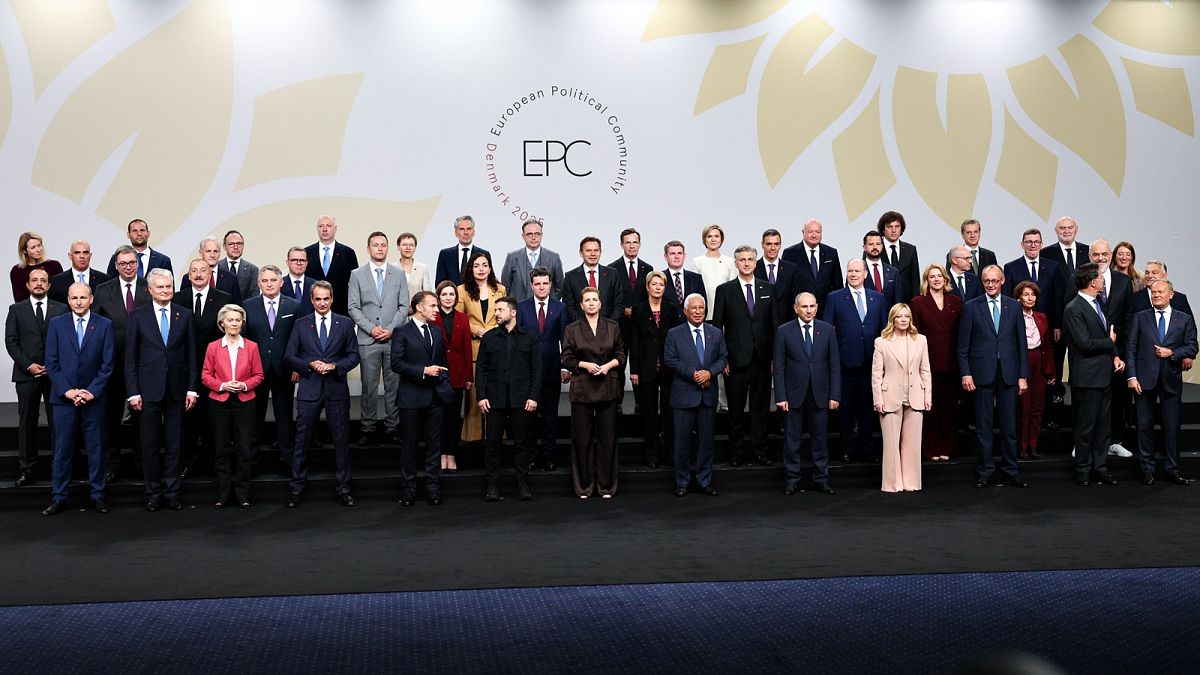European leaders concluded two days of back-to-back summits in Copenhagen that were marked by the obstructions of Hungarian Prime Minister Viktor Orbán, whose vetoes have hindered collective support for Ukraine and challenged unity at a precarious time when Russia ramps up its bombardment and the United States steps away.
Despite pleas from other heads of state and government, Orbán flat-out refused to lift his veto on Ukraine’s membership bid to join the European Union, which has also prevented Moldova from advancing in the negotiations.
Enlargement is entirely dependent on unanimity.
An attempt by European Council President António Costa to tweak the voting rules and switch to a qualified majority was quickly shot down by the Hungarian leader.
“This plan is dead,” he said.
Orbán also rejected a groundbreaking initiative to issue a €140 billion loan to Ukraine using the immobilised assets of the Russian Central Bank, despite his Belgian counterpart, Bart De Wever, making a passionate case for sharing the risks.
Belgium is home to Euroclear, the central securities depository that holds the bulk of the Russian assets, making it the chief target of the Kremlin’s potential retaliation.
“I want the maximum of legal certainty. I want solidarity,” De Wever said on Thursday morning. “I don’t think this is an unreasonable position.”
At the end of the summit, Orbán offered his reply.
“Belgium needs the mutualisation of the responsibility. No way. We’re not part of the deal,” he said, calling De Wever’s arguments “very educative”.
“If the European Union decides to touch and take away the money of somebody else, we will not be part of that (deal), so we don’t have any responsibility in the future.”
The lack of unanimity threatens to complicate what is already shaping up to be a complicated scheme. Without the backing of the 27 member states, the European Commission would not be able to use the EU budget as the ultimate guarantor.
The Commission is also trying to amend how sanctions are renewed to make the freezing of assets more predictable. But that, too, would also require unanimity.
Danish Prime Minister Mette Frederiksen aired her frustration with Orbán’s obstructionism at the closing press conference in Copenhagen.
“I think we have to stick to strategy, and enlargement of the European Union is a part of our strategy. And it’s a question for the entire European Union and actually the entire European continent. And we have to build a strong Europe as possible, which in my world means (to) enlarge the European Union,” Frederiksen said.
“I will not allow one country, and I will certainly not allow Mr Orbán, to take decisions upon the entire European future,” she added.
Frederiksen suggested Kyiv could advance its technical work while it waits for the veto to be lifted and the first cluster of accession talks (“Fundamentals”) to be opened. Earlier this week, the European Commission announced that Ukraine had completed the screening of its legislation for all six clusters “at record speed”.
“If we are not able to convince Viktor Orbán, then I simply think we just have to move on with all the work that has to be done between Ukraine and the European Commission,” Frederiksen said.
By her side, Ukrainian President Volodymyr Zelenskyy accused Orbán of electioneering.
The Hungarian leader has been in power for 15 uninterrupted years and faces his most formidable challenge in opposition leader Péter Magyar, who has taken a commanding lead in opinion polls. The country will hold elections in April 2026.
“Yes, we have problems with Hungary. We can openly speak about it because Viktor Orbán has elections. And I think it’s not smart because he has elections, that’s why he’s blocking a big 40 million (people) nation on their way to the EU,” Zelenskyy said.
“Because, by the way, Russia began this war because (of) our will and our choice, our choice to go directly to Europe. Because we feel the same and share the same values with all other European countries,” he added, referring to the 2014 Maidan Revolution.
As the accession deadlock persists and the work on the €140 billion begins, Brussels is keeping an eye on the 19th package of sanctions, which Bratislava threatens to veto.

